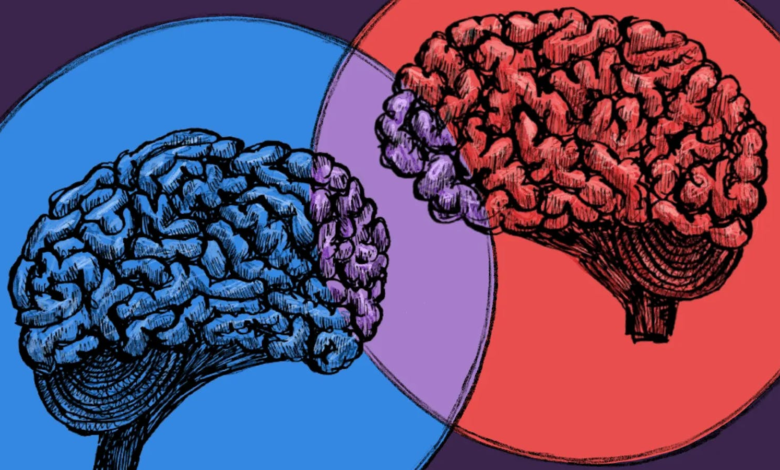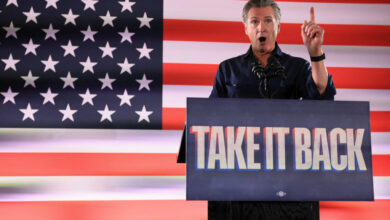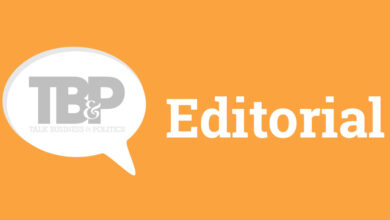Nearly 70% of students value political alignment when forming friendships, Herald poll finds

As students on College Hill look to forge friendships, they may seek out peers with similar political ideologies, The Herald’s Fall 2025 Poll suggests.
Over two-thirds of Brown students believe sharing political perspectives is important when forming friendships, according to the poll.
This trend does not stop at Brown. Over the past decade, Americans have faced growing political polarization that has bled into romance and familial relationships. Other research has found that about 25% of friendship pairs disagree with each other on prominent issues, such as immigration, abortion or gun rights.
“It’s natural for people to feel more comfortable around those who share similar perspectives. We tend to open up more easily when we feel understood,” wrote Malcolm Furman ’27, president of the Brown Political Union, in an email to The Herald.
Oriel FeldmanHall, a professor of cognitive and psychological sciences, said she was not surprised to hear that political beliefs can shape student friendships.
“Politics is often put into the bin of morality,” said FeldmanHall, who leads a lab that studies political polarization. “Morals are sacred and deeply held amongst people.”
This emphasis on political beliefs in friendships varies across demographics, according to findings from The Herald’s poll. Black students and students who did not identify as straight were the most likely to feel that political agreement was important — over 80% of students in both groups selected that political beliefs were “important” or “significantly important” when forming friendships.
Isabella Clarke ’26 told The Herald that she identifies as “Afro-Indigenous and white,” and characterizes her political affiliations as leftist and socialist. To Clarke, it matters that her friends align with her politically because “a lot of the policies would hit my racial communities more intensely.”
Ryan Cain ’29, who identifies as Black and mixed race, described his politics as left leaning. He told The Herald that because politics often deal with race, where people stand politically can show that they “believe a certain thing about somebody’s race or identity that may not necessarily be true.”
Students who identify as male were less likely to consider politics to be an important factor when making friends, compared to their peers, but just over half still valued political alignment.
FeldmanHall theorized that minority students or students who feel that their individual rights are in danger may have a greater need to ensure there’s “political scaffolding” around them to ensure the freedoms relating to their identity are protected.
“The greater the stake that we have in the outcome of these things, the more likely we are to care about it,” she said, explaining that students who hold less fear about these liberties may not value political alignment as much.
The poll also suggested that students who classified themselves as “somewhat liberal or progressive” and “very liberal or progressive” valued aligning politically with their friends far more than those who said their political views were conservative.
This finding may demonstrate a divide between students on political extremes and moderates, rather than between conservatives and liberals, FeldmanHall hypothesized.
She added that liberal respondents may be further from the center than conservative respondents. Nearly 50% of respondents who identified as liberal-leaning reported that they were “very liberal or progressive.”
Ben Marcus ’26, president of Brown College Republicans, takes a different approach to friendship and politics, telling The Herald that he does not believe political agreement is necessary when forming relationships on campus.
“There’s much more to a friendly relationship than politics,” Marcus said.
Get The Herald delivered to your inbox daily.
While she has noticed that most of her friends share her core beliefs, Ellie Wu ’28, a member of the Brown Political Review, sees the value in being open to political views that don’t necessarily align with your own.
Furman wrote that while he does hope to share specific core values with his friends, complete political alignment isn’t necessary. He added that he does have friends who don’t share all of his views, and he finds this to be very valuable: Having respectful discourse with them has helped Furman inform and broaden his opinions and understand opposing beliefs.
On the other hand, because politics is not a common topic of discussion between Sean Ngo ’28 and his friends, he chooses who to spend time with “based on character.”
Ngo, who describes himself as leaning left politically, agrees there are benefits to friendships across the political aisle, but he typically avoids conversations on the topic.
He finds that even if people are able to find common ground, the conversation may turn “heated” because “it’s hard to talk politics in a way that’s not confrontational.”
Often, people are afraid to voice their true beliefs out of fear of disagreement and judgement from others, FeldmanHall said. She believes that if people were to approach political differences from a place of genuine curiosity and a desire to learn more about conflicting perspectives, then they “stand to gain quite a bit because people will be much more forthcoming with you.”
Friendships that allow for productive debate better inform students’ political opinions, Furman wrote. While it may not always be easy, he believes “politics would be far healthier if we could all be better at disagreeing without being disagreeable.”
Credit: Source link






